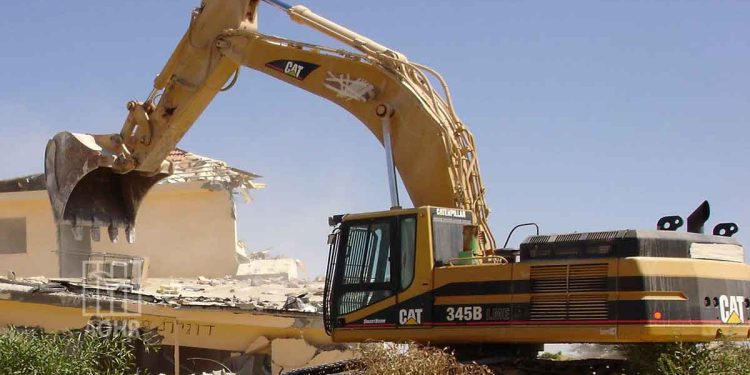In a continued escalation of spatial cleansing and forced displacement policies, the Israeli occupation authorities have compelled two Palestinian residents of Jerusalem to carry out the demolition of their own homes in the town of Beit Hanina, north of occupied Jerusalem, under the pretext of construction without a permit.
According to the Jerusalem Governorate, Rami Aloun and his son Mohammad were forced to demolish their homes to avoid hefty financial fines and the threat of legal prosecution.
These measures come within a broader discriminatory legal framework that systematically denies Palestinians building permits, while facilitating and encouraging such permits for settlers. This turns Palestinians into “violators” in their own city and compels them to demolish their homes with their own hands under duress and fear.
Meanwhile, the Israeli Supreme Court issued a ruling requiring two Palestinian families in the Batn al-Hawa neighbourhood of Silwan, south of the city, to vacate their homes within thirty days in favour of extremist settler associations. This marks yet another episode in the ongoing process of Judaising Jerusalem and imposing new demographic realities through legal instruments that are wholly biased in favour of the settlement project.
The policies of coerced self-demolition and forced eviction represent a clear violation of international law, which criminalises the forced displacement of protected populations under occupation. Home demolitions are also a blatant infringement of the human right to safe and dignified housing.
What is happening in Jerusalem and across the occupied Palestinian territories is not only a breach of the law, but rather part of a long-term settler-colonial agenda that exploits legislation, force, and the judiciary to advance a political project aimed at displacing Palestinians from their land and denying them their right to exist. This reality places an urgent moral and legal responsibility on the international community to act to halt these policies before it is too late.



























